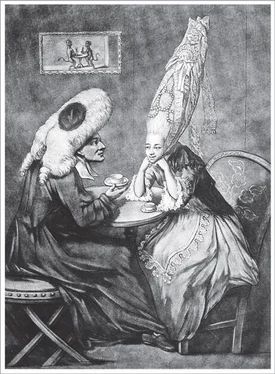Bill Bryson - At Home
Здесь есть возможность читать онлайн «Bill Bryson - At Home» весь текст электронной книги совершенно бесплатно (целиком полную версию без сокращений). В некоторых случаях можно слушать аудио, скачать через торрент в формате fb2 и присутствует краткое содержание. Жанр: Старинная литература, на английском языке. Описание произведения, (предисловие) а так же отзывы посетителей доступны на портале библиотеки ЛибКат.
- Название:At Home
- Автор:
- Жанр:
- Год:неизвестен
- ISBN:нет данных
- Рейтинг книги:4 / 5. Голосов: 1
-
Избранное:Добавить в избранное
- Отзывы:
-
Ваша оценка:
- 80
- 1
- 2
- 3
- 4
- 5
At Home: краткое содержание, описание и аннотация
Предлагаем к чтению аннотацию, описание, краткое содержание или предисловие (зависит от того, что написал сам автор книги «At Home»). Если вы не нашли необходимую информацию о книге — напишите в комментариях, мы постараемся отыскать её.
At Home — читать онлайн бесплатно полную книгу (весь текст) целиком
Ниже представлен текст книги, разбитый по страницам. Система сохранения места последней прочитанной страницы, позволяет с удобством читать онлайн бесплатно книгу «At Home», без необходимости каждый раз заново искать на чём Вы остановились. Поставьте закладку, и сможете в любой момент перейти на страницу, на которой закончили чтение.
Интервал:
Закладка:
In between running a factory and supporting Marx, Engels took a genuine interest in the plight of the poor in Manchester. He wasn’t always terribly open-minded. As we saw in Chapter XVI, he didn’t think much of the Irish and was always prepared to believe that the poor were responsible for their own sad fate. Yet no one wrote with more feeling about life in Victorian slums. In The Condition of the Working Class in England , he described people living in “measureless filth and stench” amid “masses of refuse, offal and sickening filth.” He related the case of one woman whose two little boys, freezing and on the brink of starvation, had been caught stealing food. When a policeman took the boys home, he found the mother with six other of her children “literally huddled in a little back room, with no furniture but two old rush-bottomed chairs with the seats gone, a small table with two legs broken, a broken cup and a small dish. On the hearth was scarcely a spark of fire, and in one corner lay as many old rags as would fill a woman’s apron, which served the whole family as a bed.”
Engels’s descriptions were unquestionably touching and are often quoted now, but what is frequently forgotten is that his book was published only in German in 1845 and not translated into English for thirty-two years. As a reformer of British institutions, Engels had no influence at all until long after the reforms had begun.
Elsewhere, however, the conditions of the poor were beginning to attract attention. In the 1860s, a fashion arose among journalists to disguise themselves as tramps and enter casual workhouses—what we would now call shelters—to investigate and report on the conditions within, allowing readers the safely vicarious thrill of experiencing the horrifying conditions without leaving the comforts of home. Readers learned how inmates at Lambeth Workhouse were required to strip naked and step into a murky bath, “the colour of weak mutton broth,” which was filled with the sloughed and scummy leavings of earlier bathers. Beyond were grim dormitories where men and boys, “all perfectly naked,” were crowded together on beds that were little more than pallets. “Youths lay in the arms of men, men were enfolded in each other’s embrace; there was neither fire, nor light nor supervision, and the weak and feeble were at the complete mercy of the strong and ruffianly. The air was laden with a pestilential stench.”
Stirred by these reports, a new breed of benefactors began to found an extraordinary range of organizations—a Committee for Promoting the Establishment of Baths and Wash Houses for the Labouring Classes, a Society for the Suppression of Juvenile Vagrancy, a Society for Promoting Window Gardening Amongst the Working Classes of Westminster, even a Society for the Rescue of Boys Not Yet Convicted of Any Criminal Offence—nearly always with the hope of helping the poor to remain or become sober, Christian, industrious, hygienic, law-abiding, parentally responsible, or otherwise virtuous. Still others strived to improve housing conditions for the poor. One of the most generous was George Peabody, an American businessman who settled in England in 1837 (he it was, you may remember, who provided the emergency funding that allowed the American displays to be installed at the Great Exhibition) and spent much of his vast fortune building apartment blocks for the poor all over London. Peabody estates housed almost fifteen thousand people in clean, comparatively roomy flats, though the heavy hand of paternalism was still painfully evident. Tenants were not allowed to apply paint or wallpaper, install drapes, or otherwise significantly personalize their homes. In consequence, they were not much cheerier than prison cells.
But the real change was the sudden growth of domestic missionary work, reflected most particularly in the endeavors of one man who did more to help impoverished children (often whether they wanted it or not) than anyone before him. His name was Thomas Barnardo. He was a young Irishman who came to London in the mid-1860s and was so horrified by conditions faced by helpless youths that he set up an organization formally called the National Incorporated Association for the Reclamation of Destitute Waif Children, though everyone came to know it as Dr. Barnardo’s.
Barnardo came from an exotic background. His family originated as Sephardic Jews in Spain, but moved first to Germany and then to Ireland. By the time Thomas came along in 1845, the family’s religious affiliation had switched to the more ferocious end of Protestantism. Barnardo himself came under the sway of the fundamentalist Plymouth Brethren, which is what brought him to London in the mid-1860s with the intention to qualify as a doctor and undertake missionary work in China. He never got to China. In fact, he never qualified as a doctor. Instead he began to take a missionary interest in homeless young boys (and eventually girls as well). With borrowed money, he opened his first home in Stepney, in East London.
Barnardo was a brilliant publicist and developed an immensely successful campaign based around striking before-and-after photographs of the children he rescued. The “before” photos showed grubby (and often scantily clad) waifs of sullen mien, while the “after” photographs showed them scrubbed, alert, and radiant with the joy of Christian salvation. The campaigns were so successful that soon Barnardo was expanding his interests in many directions, opening infirmaries, homes for deaf and dumb children, homes for homeless bootblacks, and much more. The slogan emblazoned along the facade of the Stepney home was “No Destitute Child Ever Refused Admission.” It was an unusually noble sentiment, and many people hated Barnardo for it. The problem was that taking in boys unconditionally was an affront to the principles of the 1834 New Poor Law.
Barnardo’s boundless ambition brought him into conflict with a fellow missionary, Frederick Charrington. The scion of an immensely wealthy brewing family based in the East End, Charrington had come into missionary work abruptly when one day he saw a drunken man beating his wife outside a Charrington pub from which he had just emerged, as his wife begged him for money to feed their hungry children. From that moment Charrington embraced temperance, renounced his inheritance, and began working among the poor. He saw the Mile End Road as his personal fiefdom, so when Barnardo announced his intention to open a temperance café there, Charrington took umbrage and embarked on a relentless campaign of character assassination. Assisted by an itinerant preacher named George Reynolds (who had until lately been a railway porter), he spread rumors that Barnardo had lied about his background, misrun his homes, slept with his landlady, and deceived the public through false advertising. Barnardo’s homes, he additionally hinted, were outposts of sodomy, drunkenness, blackmail, and other vices of the most depraved sort.
Unfortunately for Barnardo, an uncomfortably large proportion of this was true. Barnardo was something of a liar and made matters worse by responding with clumsy falsehoods now. When it was alleged that he was misrepresenting himself as a doctor—a fairly serious offense under the Medical Act of 1858—Barnardo produced a diploma from a German university, but it was shown almost at once to be a poor forgery. It was also proven that he had faked many before-and-after photographs of children he had rescued, making them look much more destitute than in fact they were. Many of the staged photographs depicted the children in artfully torn clothing that exposed alluring quantities of flesh, which many now interpreted as basely appealing to prurient interests. Even Barnardo’s most faithful supporters found their loyalties strained. Apart from concerns about his character and probity, many worried about his levels of debt. One of the bedrock principles of the Plymouth Brethren was a devotion to thrift, yet Barnardo borrowed freely and repeatedly in order to keep opening more missions.
Читать дальшеИнтервал:
Закладка:
Похожие книги на «At Home»
Представляем Вашему вниманию похожие книги на «At Home» списком для выбора. Мы отобрали схожую по названию и смыслу литературу в надежде предоставить читателям больше вариантов отыскать новые, интересные, ещё непрочитанные произведения.
Обсуждение, отзывы о книге «At Home» и просто собственные мнения читателей. Оставьте ваши комментарии, напишите, что Вы думаете о произведении, его смысле или главных героях. Укажите что конкретно понравилось, а что нет, и почему Вы так считаете.












